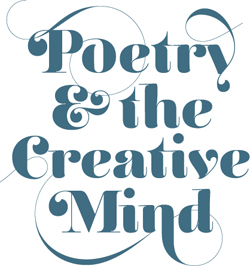We recently posted about the unique creativity of poets that enables many of them to sense the future. And then we ran across a study by James Pennebaker, a professor of psychology at the University of Texas.
In 2001, Psychosomatic Medicine published Pennebaker’s article about a study he conducted that showed how a poet’s words can foreshadow their suicides. It sounds like a tool along the lines of Minority Report, doesn’t it?
In the movie, three precognitive women predicted crimes before they happened. In Pennebaker’s study, the tool was a computer analysis of 156 poems written by nine British, American, and Russian poets who killed themselves. The analysis found stark differences in words and language patterns compared with the work of nine poets who died naturally.
Among the suicidal poets who were studied were Anne Sexton, Sylvia Plath, John Berryman, Hart Crane, Sergei Esenin, Adam L. Gordon, Randall Jarrell, Vladamir Mayakovsky, Sarah Teasdale.
Their work was compared with 135 poems written by Lawrence Ferlinghetti, Boris Pasternak, Matthew Arnold, Joyce Kilmer, Robert Lowell, Adrienne Rich, Denise Levertov, Osip Madelstam, and Edna St. Vincent Millay. Pennebaker’s findings are intriguing.
Suicidal poets, Pennebaker said, used words that indicated detachment from other people and a preoccupation with themselves. Words like I, me, and my were used more frequently by suicidal poets than by non-suicidal poets. “The words we use, especially those that often appear to be the unimportant words, say a lot about who we are, what we are thinking and how we approach the world,” Peneebaker noted in the article. “People who are suicidal or depressed use ‘I’ at much, much higher rates and there is also a corresponding drop in references to other people.”
Just as the precogs in Minority Report pinpoint strong probabilities of a crime that will be committed based on the patterns of violence and emotions in the images they pick up, Pennebaker found that suicidal poets generally reduced their use of words like talk, share, and listen as they approached their deaths. Non-suicidal poets, he found, generally increased their use of those words as they got older. The potential suicides used words associated with death more frequently than the second group, but there wasn’t much difference in the use of words like hate and love.
Pennebaker also noted that suicide is more prevalent among poets than other writers or the general population. “Poets are more prone to depression. No one would call poets a particularly bubbly, chipper group.”
He believes these patterns of language used by poets who eventually killed themselves could be “linguistic predicators of suicide” in poets who are still with us. “We are not saying that if you use I a lot, then you will commit suicide. It is simply a marker of greater risk.”
The danger in technology using “predictors” for any sort of behavior is that people change, grow, evolve. Our emotional lives are as ephemeral and ever changing as the oceans. The priorities we had at fifteen, the emotions we experienced, the way we understood the world and ourselves within it bears little resemblance to what we experience at thirty. Or fifty.
The poets in this study who were suicides lived in times and cultures that no longer exist. In today’s world, if you’re a depressed poet, you probably tweet about it, start a closed Facebook group, Instagram it, publish a You Tube video. You write a free e-book that is downloaded two million times and you’re offered a six-figure publishing contract and suddenly have a renewed interest in life. In other words, the Internet offers an almost instantaneous community. What would make for an interesting study is the words that poets use now, fourteen years after Pennebaker’s article was published.
Since 2001, the world has changed drastically. If you would like the specifics, just Google (there’s one of the changes!) How did the world change between 2001 and 2016? You can bet that today’s poets are among the first who have reacted and are shaping those changes. Our friend Jenean Gilstrap – Gypsy – is one of them. Google her name on Facebook and treat yourself to her beautiful words.









Reading Terri’s comment, it struck me how opposite I am, in that I can’t do lots of words or length or time. There’s more power to fewer words, than an essay, or story, or book. My perspective. And I loooove reading, the thicker the book the better. It’s just something I am unable to create. Different minds, is all, I guess.
Just making sure that Joyce Kilmer (he penned the brief and beautiful poem TREES),
was not included in the suicide group? He died in combat in the war at a very young age. Yes…..Jenean’s poems are exquisite streaming of thoughts-into-words that express deep emotions and feelings that so many others haven’t the gift of words to express. Very intriguing post, MacGregors.
Fascinating study. I was just thinking about how much the world has changed since I was a young girl. That study sounds very intriguing. You come up with some very interesting posts and now you’ve got me going! 🙂
Okay, here’s something to consider – https://www.ted.com/talks/clint_smith_the_danger_of_silence
I think poetry, and the exceptional use of language for a purpose, will resonate with more power and action on a global scale in the new technology that is all about sound bites and quick slams. Truths, said well, and easily put into memes with powerful graphics, is a new venue to consider.
I can’t do it – my stories require lots of words and novel length venues, and months or years for their creation. That’s what it takes for me to get to a truth, and that’s okay. Poets and journalists defined my life and in many ways do – again. But I also know that poets operate on a different stage and curtain call, yet we are on the same page regarding how to enhance the other. It’s all cultural and spiritual – and unique human journeys where we all benefit.